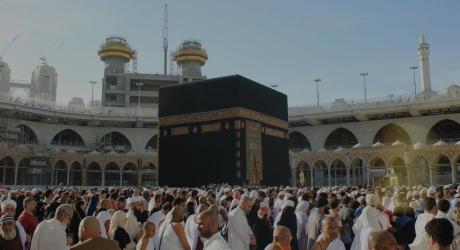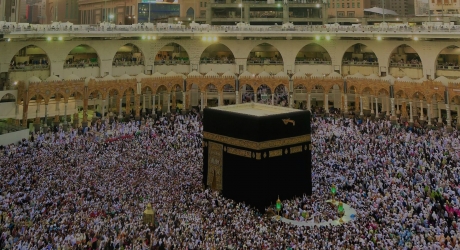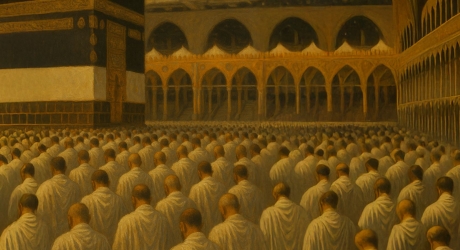When a servant of God bows before his Lord, and does so, not just as a matter of form, but in the spirit of true humility, the effect of his action does not remain confined to the domain, but extends to his everyday existence, pervading it completely. His thinking and actions bear the permanent stamp of his devotions, for it is impossible for a man to fear God and to bow before Him without being influenced thereby in his dealings with others. A true worshipper cannot be humble and meek before God and yet be arrogant and supercilious to his fellow men. He will not, of course, prostrate himself before them, nor will he address the words “You are great” to another person, as he would to God. But he will certainly avoid asserting his own superiority, and instead will adopt a humble demeanour on a parallel with his self-prostration before his Maker. The submission which he expresses in prayer to God becomes a reality in terms of his observance of others’ rights. The very act of facing in the correct direction influences him to take a principled stand in his everyday dealings. At prayer in the mosque, he is the epitome of servitude to God: outside the mosque, he is the perfect character—humble in demeanour, morally upright, and kind considerate and forgiving in all his transactions.
The important thing about prayer is that it induces the correct attitude in the devotee, as though the spirit of his prayers were keeping a watchful eye on everything he says and does. When going about his worldly affairs, it is as if the whole world were a mosque; his actions, therefore, at all times and in all places cannot be other than in consonance with what his worship requires of him.
Source: Islam Pocket Guide









